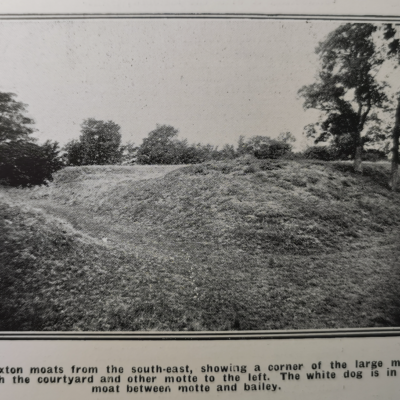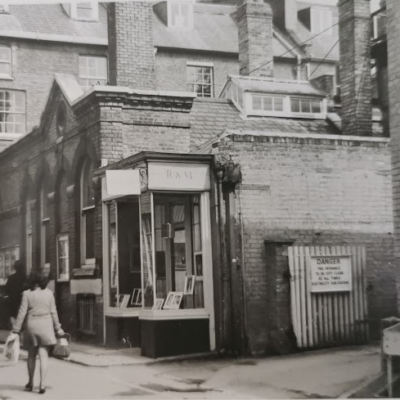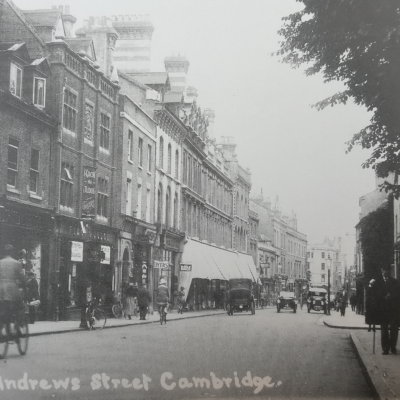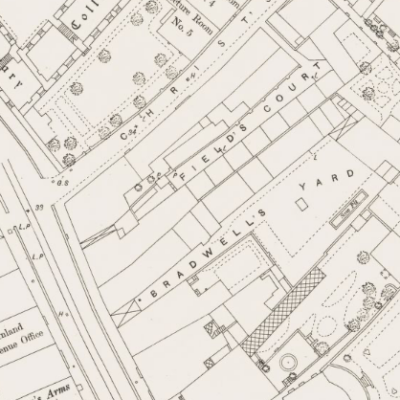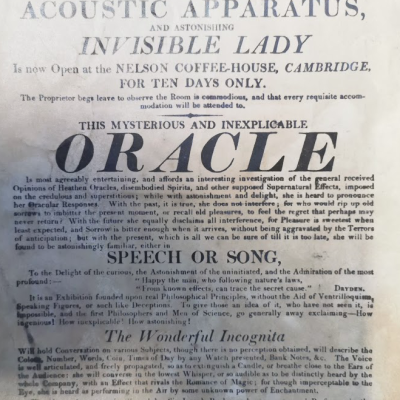Search by topic
- archaeology
- Building of Local Interest
- chapel
- charity
- church
- crime
- dressmaker
- fire
- Great Eastern Railway
- Listed building
- Mapping Relief
- medieval
- oral history
- poverty
- Public House
- Religious House
- Roman
- scholar
- school
- Then and Now
- tudor
- women
- work
- world war one
- world war two
Search by text
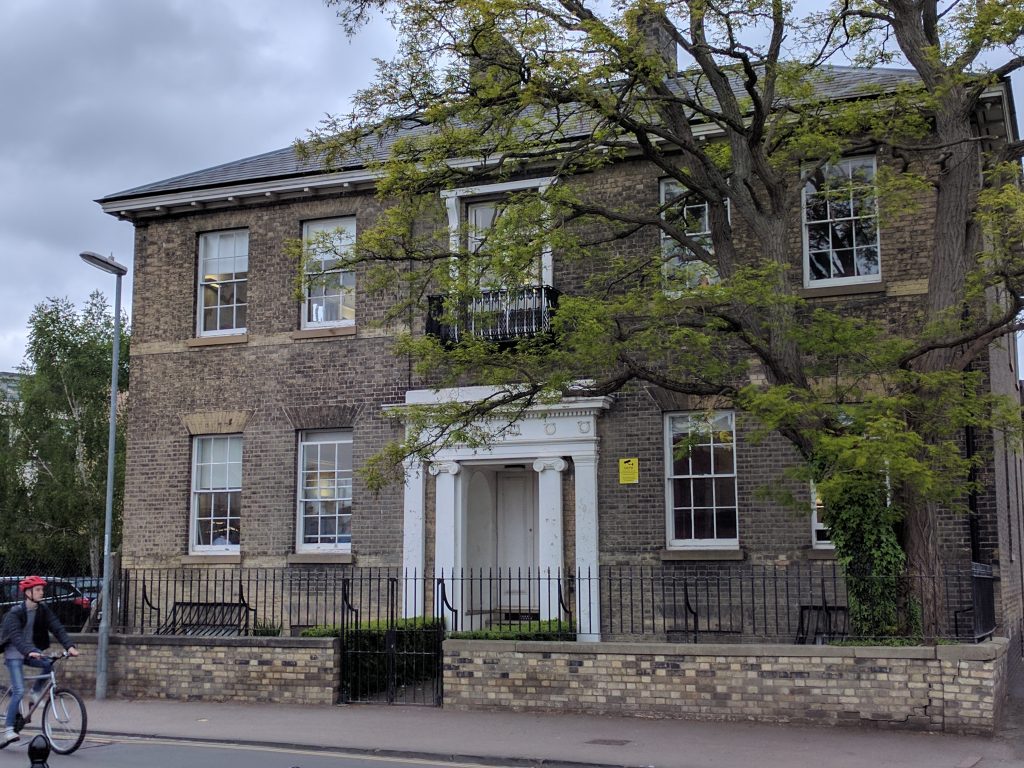
Furness Lodge, Park Terrace
History of Furness Lodge, Park Terrace
Royal Commission Survey of Cambridge 1959: built about the middle of the 19th century and forms no part of the unified lay-out of Park Terrace… The design is more pretentious and less successful than that of the earlier 19th century ‘villa’ exemplified by Camden House or Park Lodge.
Catholics in Cambridge (2003) edited by Nicholas Rogers (chapter 34 Felix Quia Fidelis: St Mary’s School 1898-1990) records how five sisters of the Institute of the Blessed Virgin Mary set out from the Provincial House in York in September 1898 with the intention of setting up a centre for the accommodation and education of female students in Cambridge. They had been encouraged to do this by a Miss Donelan, a pioneer in the training of Catholic women teachers, who was then active in Cambridge.
The Catholic student teachers were at the time accommodated in a hostel in Queen Anne Terrace on the south side of Parker’s Piece. The five sisters from York moved into Furness Lodge. There were no female students in need of accommodation at the time so they turned to two further objectives, one, the teaching of the children of Canon Scott’s Catholic mission, the other, the establishment of of a girls’ boarding school.
The establishment was not a great success; most children left the school in 1900, the standard of teaching was probably not very high and there was a suspicion of unhealthy drains at Furness House. The first few years for the nuns were ones of poverty owing to their very limited income from school fees. A decision was made to move to more promising accommodation and finally Furness Lodge was sold and the community moved to The Elms, a large family house, at the end of Bateman Street in March 1904.
Further information on St Mary’s School can be found here:
https://en.wikipedia.org/wiki/St_Mary%27s_School,_Cambridge
Furness Lodge is now a Grade II listed building.
1891
Frederick Parkes, 64, living on own means, b Cambridge
Charlotte, 54, b Liverpool, b Cambridge
Louise Ellen, 30, art student, b Cambridge
Fanny Rosa Parks, 28, unemployed, b Cambridge
William F, 23, furniture dealer, b Cambridge
Frank, 21, auctioneer’s clerk, b Cambridge
Mary Florence, 20, unemployed, b Cambridge
Lucy Dorothy Williams, 24, servant, b Suffolk
Annie Ward, 35, servant, b Coton
1901
Elizabeth Ryan, 40, Superior of Religious Community, b Ireland
Mary J Haigh, member of community, 51, b Warwicks
Agnes Burue, member of community, 55, b Ireland
Beatrice M Cuncliffe, 32, member of community, b Liverpool
Sarah Thompson, 50, member of community, b Lancs
Annie Porter, 59, member of community, b Durham
Mary Connor, 38, member of community, b Yorks
Mary Murphy, boarder, 24, teacher, b Ireland
Greta May, boarder, 34, teacher, b Austria
Julia Murphy, boarder, 21, student, b Ireland
Anna Leratton, boarder, 32, student, b Ireland
Norah T Layton, boarder, 15, student, b Surrey
Mildred Reynolds, boarder, 18, student, b Lancs
Mary A Fraser, boarder, 9, student, b London
Sarah M J Haigh, boarder, 7, student, b Leics
Cecilia Kelly, 26, member of community, b Liverpool
1911
James Valentine Pryor, 73, fishmonger, born Cambridge
Elizabeth Fanny, 56, born Notts
Grafton Deen, 28, barrister at law, born Cambridge
Mary E H, 25, born Cambridge
Ellen Mary Porter, 22, servant, born Bottisham
Annie Elizabeth Houghton, cook, 24, born Soham
Vera Ethel Belsham, housemaid, 20, born Sawston
In 1901, James Pryor and his family were living at The Hall in Milton outside Cambridge. When James died 24th August 1922, his address is given in the National Probate Calendar as Milton Hall.
In 2017 Furness Lodge was a Grade II listed building.
Contribute
Do you have any information about the people or places in this article? If so, then please let us know using the Contact page or by emailing capturingcambridge@
Licence
This work is licensed under CC BY-NC-SA 4.0







